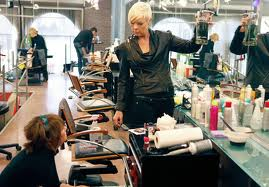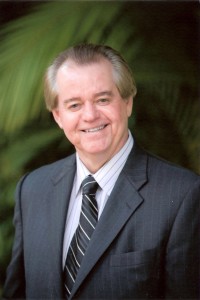Though it rarely is mentioned in workforce discussions, an extensive system of private post secondary schools exists in California. This system enrolls roughly 400,000-500,000 Californians each year, in training for allied health care workers, information technology workers, and workers in beauty salons, car repair shops, and restaurants to name a few venues. It deserves greater attention in 2014.
The emphasis in workforce discussions in California 2013 continues to be on jobs in the “knowledge economy”. These are jobs that generally require a college degree and substantial analytic skills—jobs as software engineers, pharmacists, management analysts, educational counselors.
But in fact, on both national and state levels, job projections are for the great majority of jobs to be outside the knowledge economy, in the occupations that Bureau of Labor Statistics Regional Commissioner, Richard Holden, has come to call “the practical economy”. These are jobs such as health aide, chef and food preparation worker, childcare worker, customer service representative. They usually do not require a four year degree, do not draw so heavily on analytic skills, and instead provide a real service desired by individuals.
These practical economy jobs are making a comeback in popular culture. The craft in these jobs is being captured in a growing number of work-reality television shows: auto repair/customizing (“Pimp My Ride” ), a line of food preparation and bakery shows (“Cupcake Wars”, “Cake Boss”), even pawn shop workers ( “Pawn Stars”, and its spinoffs), to name a few. In “Tabatha’s Salon Takeover” working in a beauty shop is not a throwaway job: it is a job of craft and providing a service needed by the customer.
 Since 1985, the California Association of Private Postsecondary Schools (CAPPS) has been this sector of Higher Education’s Association for the schools in California that train for many of these practical economy jobs. CAPPS has around 300 schools among its membership. A few of these schools are national vocational school chains based in the State; the great majority are California-based independents, such as Asher College in Sacramento, Bellus Academy of Spa & Beauty in Poway, Pima Medical Institute in Chula Vista, Santa Barbara Business College.
Since 1985, the California Association of Private Postsecondary Schools (CAPPS) has been this sector of Higher Education’s Association for the schools in California that train for many of these practical economy jobs. CAPPS has around 300 schools among its membership. A few of these schools are national vocational school chains based in the State; the great majority are California-based independents, such as Asher College in Sacramento, Bellus Academy of Spa & Beauty in Poway, Pima Medical Institute in Chula Vista, Santa Barbara Business College.
 Mr. Robert Johnson is the Executive Director of CAPPS and one of our most experienced workforce practitioners in California. Mr. Johnson began his career working with manpower programs in California in the early 1980s, and headed public workforce programs through the 1990s in Monterey County, City of Long Beach and Orange County. He has headed CAPPS since 1998.
Mr. Robert Johnson is the Executive Director of CAPPS and one of our most experienced workforce practitioners in California. Mr. Johnson began his career working with manpower programs in California in the early 1980s, and headed public workforce programs through the 1990s in Monterey County, City of Long Beach and Orange County. He has headed CAPPS since 1998.
Mr. Johnson notes two ways that CAPP’s schools differ from other parts of the workforce system: many of the students who come to CAPPs schools often have not had successful educational outcomes in public educational settings that resulted in job placement, and the CAPPS schools train for practical economy jobs that other institutions are not heavily focused on.
The majority of private post secondary schools in California are smaller, local entities, with one or several locations. They generally are very close to local labor markets and work with local employers. Student referrals are a principal way in which they attract students. They must be able to obtain jobs for their graduates if they wish to stay in business .
Mr. Johnson points to several different directions that private postsecondary schools are pursuing to improve their student educational offerings. Online training is being mixed with on-ground instruction to improve the quality of education and drive down costs. A “stacked certification” approach is being introduced, providing mini-certifications for students. Specific skills are to be achieved that potential employers will identify and value in the hiring process.
The private post secondary schools in California will be adapting and evolving as other educational institutions in line with the evolving California labor market. They should be a greater part of the workforce discussion in 2014.

